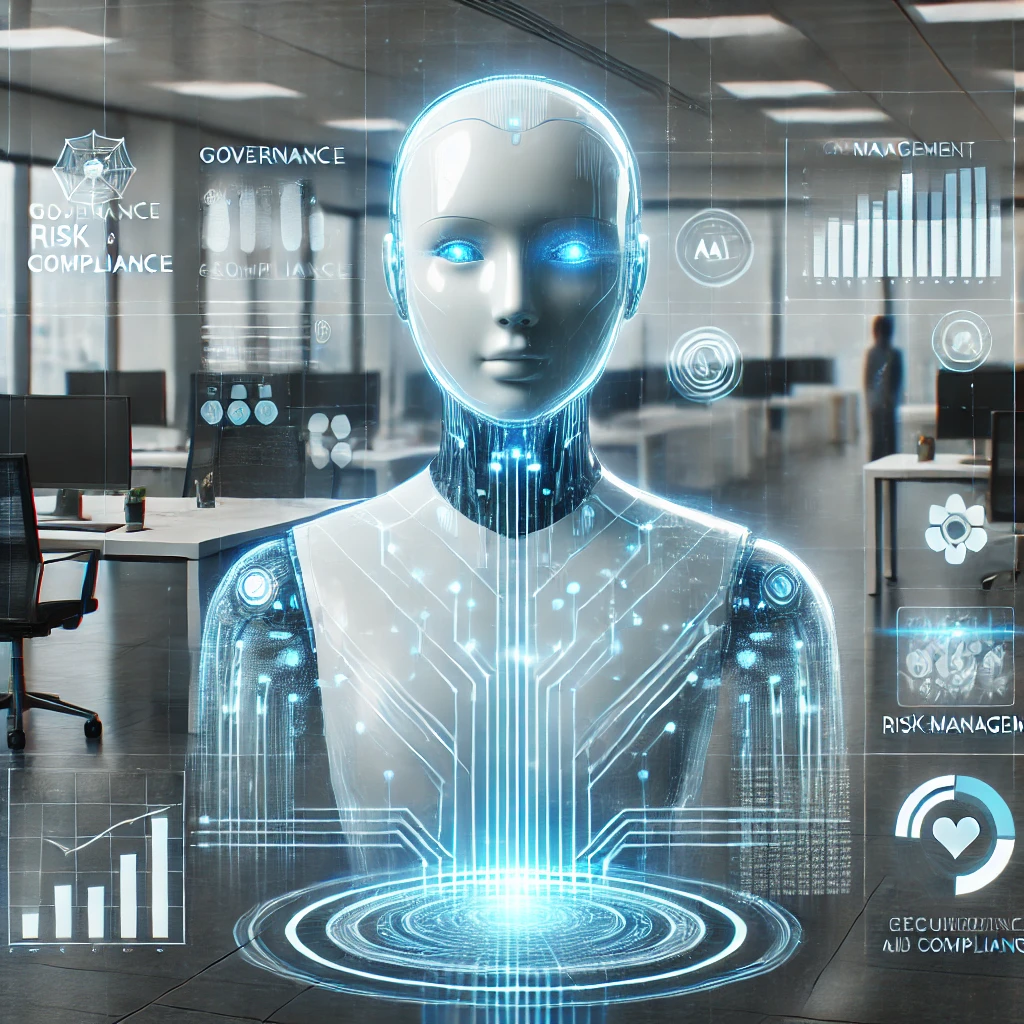In the dynamic landscape of modern business, where regulatory requirements evolve rapidly and cyber threats grow more sophisticated, the role of Governance, Risk, and Compliance (GRC) has never been more critical. Organizations are tasked with ensuring robust security, maintaining compliance with laws and regulations, and effectively managing risks—all while remaining agile and innovative. Enter Artificial Intelligence (AI), a transformative force reshaping how GRC challenges are addressed.
In the dynamic landscape of modern business, where regulatory requirements evolve rapidly and cyber threats grow more sophisticated, the role of Governance, Risk, and Compliance (GRC) has never been more critical. Organizations are tasked with ensuring robust security, maintaining compliance with laws and regulations, and effectively managing risks—all while remaining agile and innovative. Enter Artificial Intelligence (AI), a transformative force reshaping how GRC challenges are addressed.
Why AI Matters in GRC
AI is not just a buzzword; it’s a powerful enabler that enhances decision-making, automates repetitive tasks, and uncovers insights that were previously buried in data. In the context of GRC, AI brings numerous benefits:
1. Improved Risk Management
AI-driven tools can analyze vast amounts of data to predict potential risks, identify vulnerabilities, and recommend proactive measures. Machine learning algorithms, for instance, can detect patterns and anomalies in system behavior, alerting organizations to potential threats before they escalate.
2. Enhanced Compliance Monitoring
Regulatory compliance often involves reviewing extensive documentation and staying updated with evolving laws. AI can streamline this process by:
- Automating policy reviews and updates.
- Monitoring transactions and operations for compliance violations.
- Generating detailed compliance reports in real-time.
3. Efficiency in Audits
Audits are resource-intensive and time-consuming. AI reduces the manual burden by analyzing financial data, identifying discrepancies, and highlighting areas of concern, enabling auditors to focus on strategic oversight rather than data crunching.
4. Real-Time Insights
AI tools offer dashboards and analytics that provide real-time insights into an organization’s risk and compliance status. This instant access to data helps executives make informed decisions quickly.
Use Cases of AI in GRC
- Vendor Risk Management: AI evaluates vendor performance, monitors contract compliance, and identifies risks associated with third-party relationships.
- Fraud Detection: Machine learning models flag unusual financial activities, reducing the risk of fraud.
- Regulatory Intelligence: AI systems scan and interpret regulatory updates globally, helping organizations adapt to new requirements without delay.
- Policy Generation: AI can draft policies based on industry standards and organizational needs, saving time and ensuring alignment with best practices.
Challenges in Adopting AI for GRC
While the potential of AI in GRC is immense, its adoption comes with challenges:
- Data Privacy: Ensuring AI systems adhere to privacy laws like GDPR and CCPA.
- Bias in AI Models: AI models must be trained on diverse data to avoid biased decision-making.
- Integration: Integrating AI with existing GRC frameworks can be complex.
- Cost: Implementing AI solutions requires investment in technology and expertise.
The Future of AI in GRC
As AI technologies mature, their role in GRC will continue to expand. We can expect:
- AI-Powered GRC Advisors: Tools like Eve, an AI-powered advisor, will assist organizations in navigating complex GRC landscapes.
- Predictive Compliance: AI will not only ensure current compliance but also predict future regulatory trends.
- Autonomous Systems: Self-learning AI systems that adapt and evolve with organizational needs.
Conclusion
AI and GRC are a powerful combination poised to redefine how organizations manage governance, risk, and compliance. By leveraging AI’s capabilities, businesses can stay ahead of threats, meet regulatory obligations efficiently, and focus on strategic growth. However, as with any innovation, the key lies in thoughtful implementation and continuous improvement.
The question is not whether AI will transform GRC—it’s how quickly organizations will embrace this transformation.








